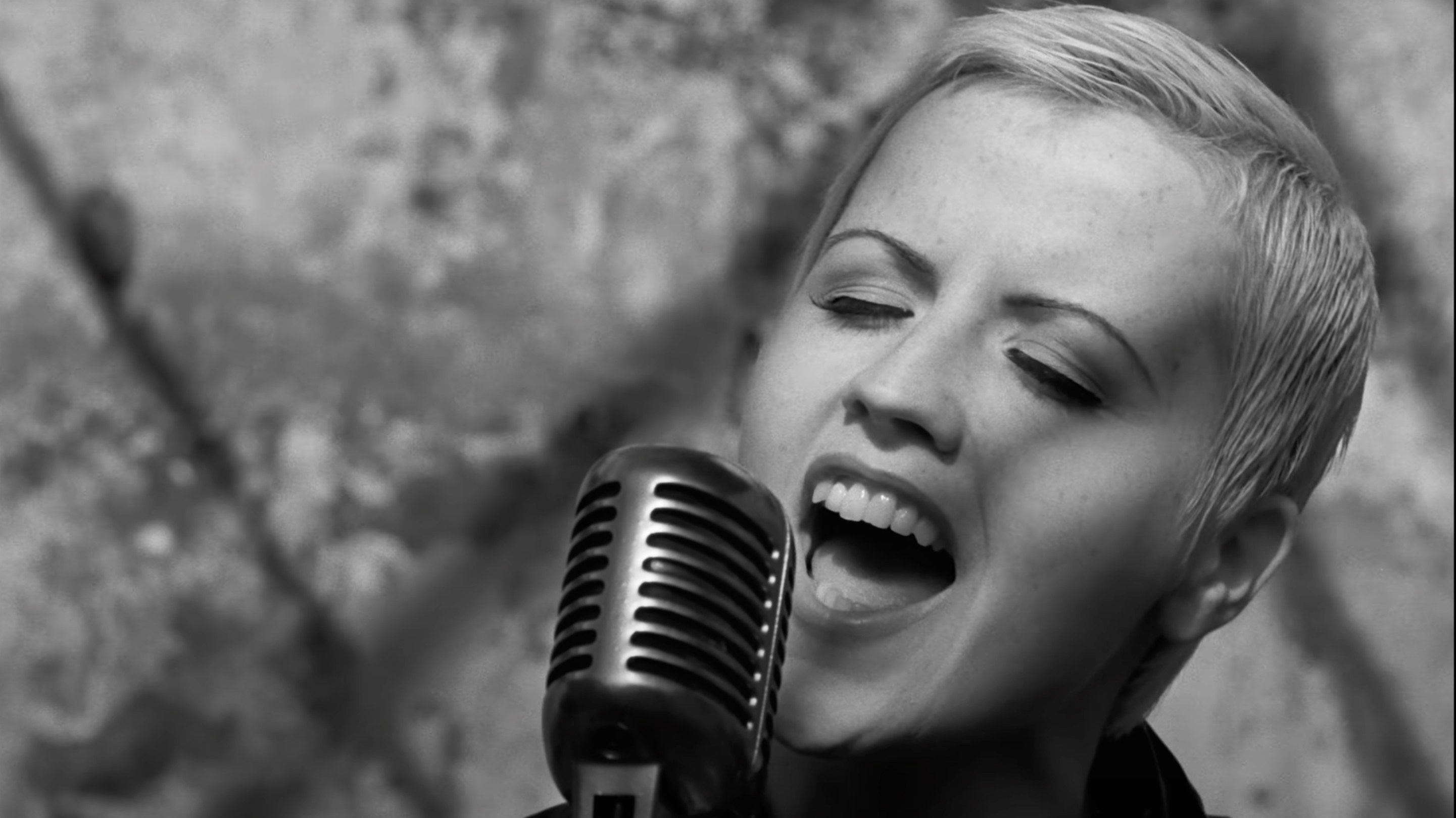“The way she delivered it was more important than the actual subject matter. Her delivery of that chorus is so powerful”: How The Cranberries created the monster hit Zombie
"That song just seemed to hit a nerve and click"

It was the biggest song of The Cranberries’ career, and guitarist Noel Hogan can still vividly recall the moment when he first heard an early version of it – sung and strummed on acoustic guitar by Dolores O’Riordan.
“We were at a house a friend of ours let us use to rehearse,” Hogan tells MusicRadar. “Dolores came in with it and started playing it on acoustic. She was like, ‘I had this idea…’ And then we all started doing our thing.”
The song in question was Zombie, and it became a classic alternative rock anthem of the ‘90s.
Formed in the Irish city of Limerick, The Cranberries had success right off the bat with their debut album Everybody Else Is Doing It, So Why Can’t We? Released in 1993, the album featured jangly hits Dreams and Linger, which leaned more toward the sound of The Smiths than period-correct grunge rock.
But when they set about working on their second album, No Need To Argue, their approach had changed.
“We were definitely a lot more confident,” Hogan says.
And along with that confidence came a willingness to expand their horizons.
Want all the hottest music and gear news, reviews, deals, features and more, direct to your inbox? Sign up here.
“After the first album, Dolores and I kept writing constantly,” Hogan recalls. “If we finished the album on, say, a Friday, we were back to writing again on Saturday.”
For Hogan – a young and green player at the time – this period was a steep learning curve. “We were playing every single day,” he says, “and when we went into the second album, we were more confident and way tighter as a band.”
Retaining the services of producer Stephen Street, The Cranberries shifted into heavier territory.
This was clearly evident with Zombie, an idiosyncratic track with a hard-hitting message and an even harder-hitting guitar track that propped it up.
But it didn’t start out that way.
“To be honest,” Hogan says, “we’d always done this kind of jangly pop guitar, this lighter-on-the-drums thing. It was Dolores who said, ‘No, this song is angry. That needs to be reflected.’
“That was the turning point. After that, we all started playing a lot heavier. I literally went off and bought my first distortion pedal! I had to get a sound, and I couldn’t get it without that pedal.”
At the time, The Cranberries were touring relentlessly. While their early songs were lighter in nature, they would heavy them up in live shows. And so, when they dropped Zombie into the mix, the crowds responded.
“We put it in the set as a test run,” Hogan explains. “It really seemed to strike a chord straight away. There was just this reaction to it.
“It’s funny how things worked out,” he adds. “By the time we got to record that song, the grunge thing had come along. Nirvana and Pearl Jam were really big.”
The Cranberries were never a grunge band, even if they were half-heartedly marketed that way out of convenience.
“We never understood that,” Hogan insists. “But I, as a guitar player, was kind of thinking, ‘Oh, that’s the kind of sound I need to get for this.’ So the timing just kind of worked out.”
Dolores O’Riordan was the sole writer credited on Zombie, but Hogan played an important role in its creation. “I was able to fill that song with a lot more sound,” he says.
“I’d started buying a lot of gear then. I’d go to pawn shops, and things like that. I’d grab vintage [Vox] AC30s and Marshalls. And I had an ES-335 that I’d gotten – I used that on Zombie.
“I also had a [Gibson] Les Paul. I ran them through the AC30, cranked it up, and added a Tele. That’s the guitar sound that everybody heard on the record.”
That said, Zombie was very much O’Riordan’s song. Her enigmatic lyrics depicted ongoing struggles in Northern Ireland. And her voice was astonishing – described by Mikael Wood of the Los Angeles Times as a “desperate, yodeling vocal that conjures some ancient emotion”.
Hogan says of O’Riordan’s performance: “The way she delivered it was more important than the actual subject matter. Her delivery of that chorus is so powerful, and it was a far more aggressive song in that sense.
“With the subject matter, the four of us [in the band] grew up at a time when the Troubles were constantly on the news. It was only 100 miles north of us, so it wasn’t a big surprise that she was singing about that.”
Inevitably those lyrics attracted controversy.
Says Hogan: “As far as the powers outside of the four of us, we never worried about how it would be received.”
But the band’s management didn’t agree.
“Maybe they and the record company had slight concerns,” Hogan says. “But that song just seemed to hit a nerve and click.
“It was such a huge song everywhere. No matter what, thankfully, people understood what Dolores was trying to say with it.”
Zombie was a major hit all around the world, hitting No.1 in Australia, France and Germany and several other territories. It was deemed ineligible for the US Billboard Hot 100 chart, but on the Alternative Airplay chart it hit No. 1.
“A lot of people were very surprised at the dramatic change from Dreams, which was the last single they’d heard from us,” Hogan says. “Dreams and Zombie were completely different types of songs. But look – it worked.
“We were touring around the US in the ‘90s, so far away from where we came from in Ireland. At the time, not a lot of English or Irish bands were breaking in America, but Zombie was a big one, and it was just amazing to be accepted like that.”
Zombie took The Cranberries to another level, skyrocketing them to fame. The song became a hallmark of the ‘90s alternative era, and the band’s career post-to-post.
Hogan tells MusicRadar that this song means even more to him since he lost Dolores O’Riordan, who died in a freak drowning accident in a London hotel room in 2018.
“Zombie was just such a huge success,” he says. “We were thankful for it. It was popular then, and it’s been around a long time now.”
Andrew Daly is an iced-coffee-addicted, oddball Telecaster-playing, alfredo pasta-loving journalist from Long Island, NY, who, in addition to being a contributing writer for Guitar World, scribes for Rock Candy, Bass Player, Total Guitar, and Classic Rock History. Andrew has interviewed favorites like Ace Frehley, Johnny Marr, Vito Bratta, Bruce Kulick, Joe Perry, Brad Whitford, Rich Robinson, and Paul Stanley, while his all-time favorite (rhythm player), Keith Richards, continues to elude him.
You must confirm your public display name before commenting
Please logout and then login again, you will then be prompted to enter your display name.


